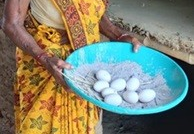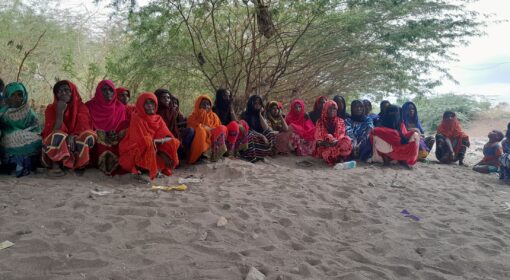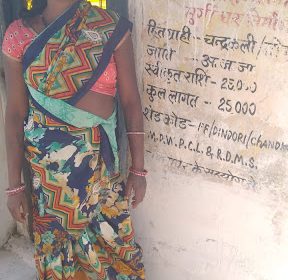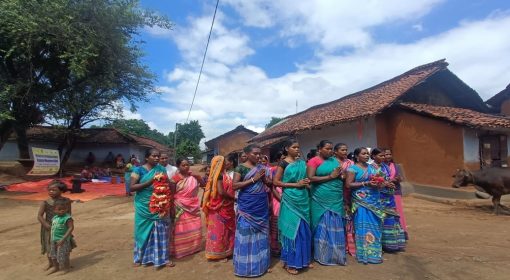Weapons against domestic violence
by Frank van Steenbergen
January 4, 2018

Asked recently what good, improved agriculture brought to farming families on coastal Bangladesh, the answer among local farmer trainers was surprising: there is less domestic violence.
The explanation is this: In the last 5 to 10 years, also due to projects such as the Blue Gold project in Bangladesh, there has been an upsurge in women doing home yard vegetable gardening, animal fattening, or poultry. It has added considerably to the farm income and with this to the status of women in their families. They are able to save money and may even lend some to their husbands for their businesses. Thus, very gradually, due to cauliflowers and eggplant, their status has improved and there has been less violence and aggression against them.
Family well-being is not a trivial issue. In 2011 a survey was undertaken by the Bangladesh Bureau of Statistics in collaboration with the United Nations Population Fund, published as the ‘Violence against Women Survey 2011.’ The outcomes are alarming, with 87% of women stating they had been abused by their husbands, and 77% in the year before. Of those abused, 50% had sustained serious injuries – yet most did not seek medical help because of fear of shame and retaliation. The low status of women in society and most importantly in families, due to the dowry system, is at the base of this. The perception, awful as it is, is of women being strangers in the family contributing little to it. Far away from their own family and the protection that comes with it, they are defenseless against a lifetime of frustration with their husbands and families-in-law.
And here the vegetables made a difference, and so do the chicks, goats, and cows – all livelihoods options that lie in the women’s realm. It is part of the horticultural revolution of the last thirty years that in many places vegetable gardening has been added to the family farm business, though there is still a long way to go. These days many such revolutions happen through the strength and stealth of people . We may have bad leaders, and we may lack statesmen and stateswomen. Big businesses may corrupt and violate our right to be left in peace, but against all of that there is a gradual movement of people and their initiative and energy making things better. The march of vegetables is one such example – improving our nutrition, creating sources of income, getting the best out of limited land and water resources.
{jcomments on}



